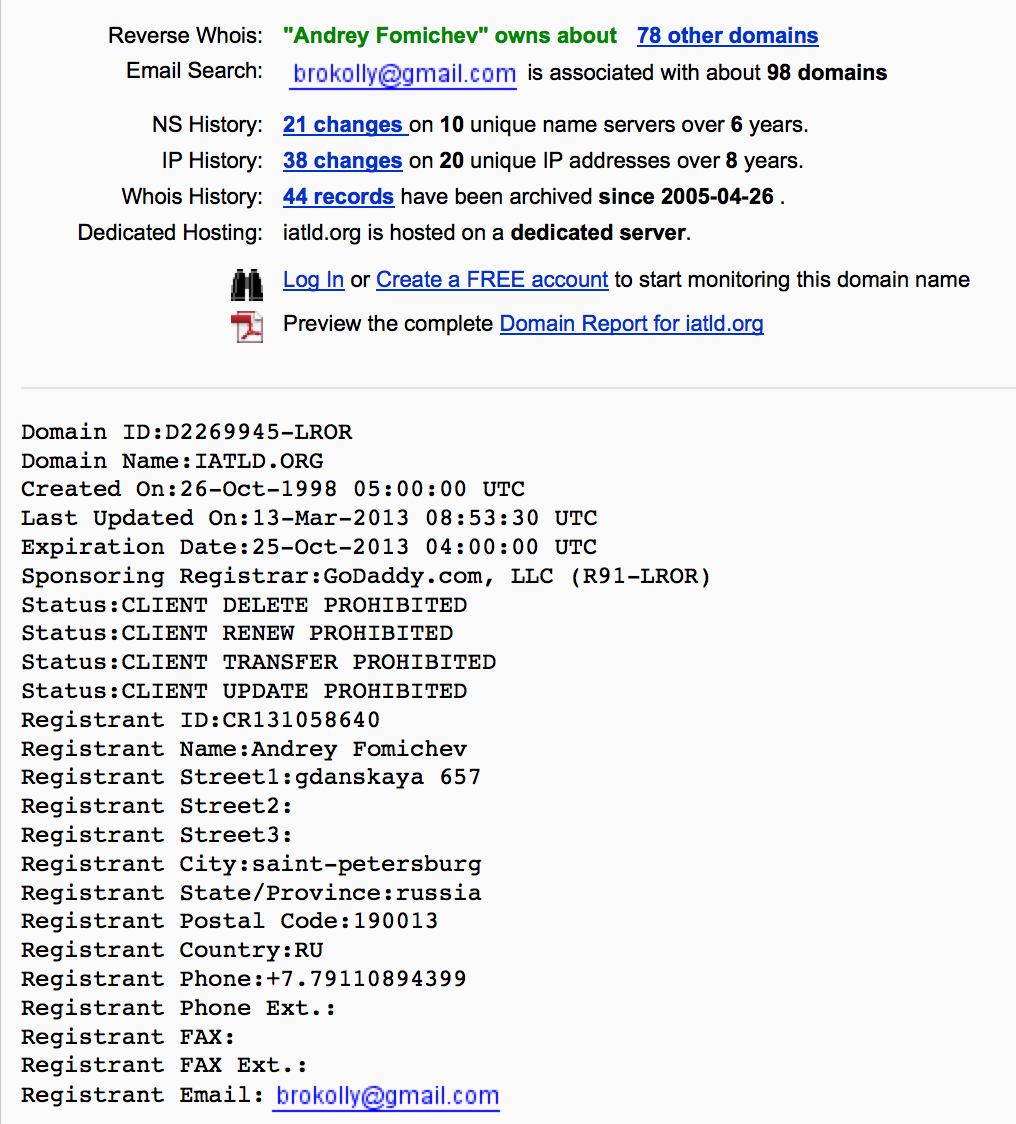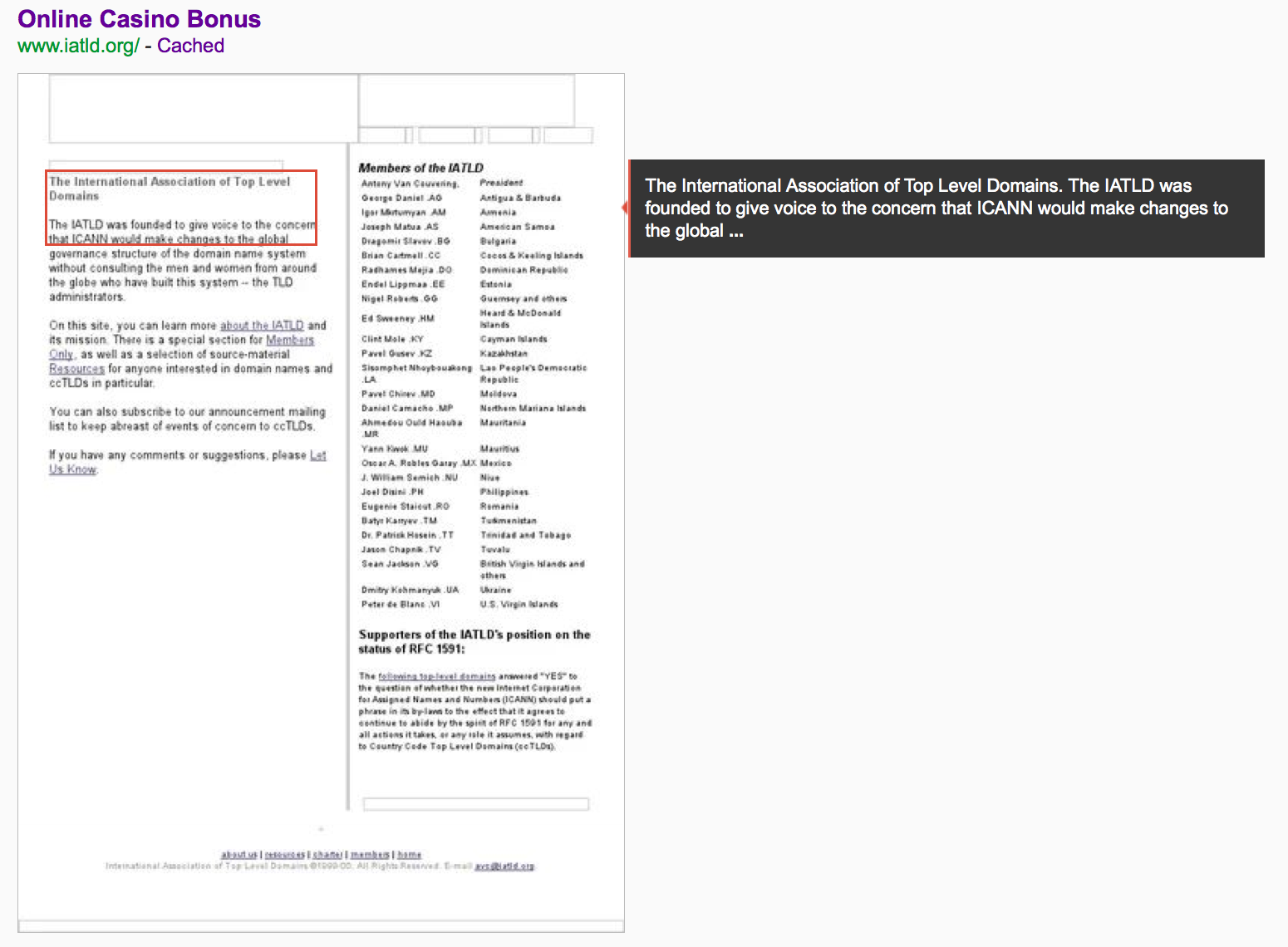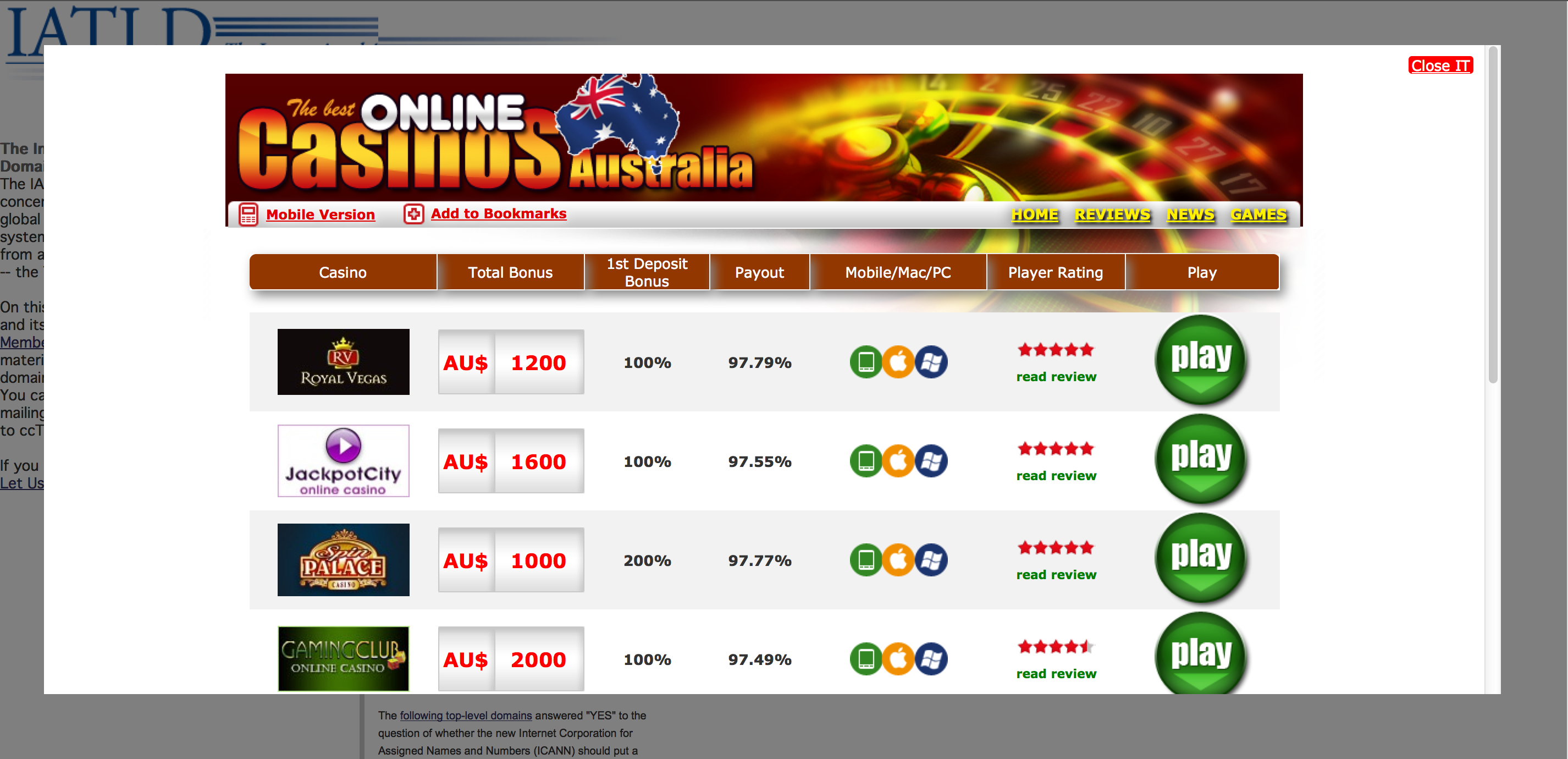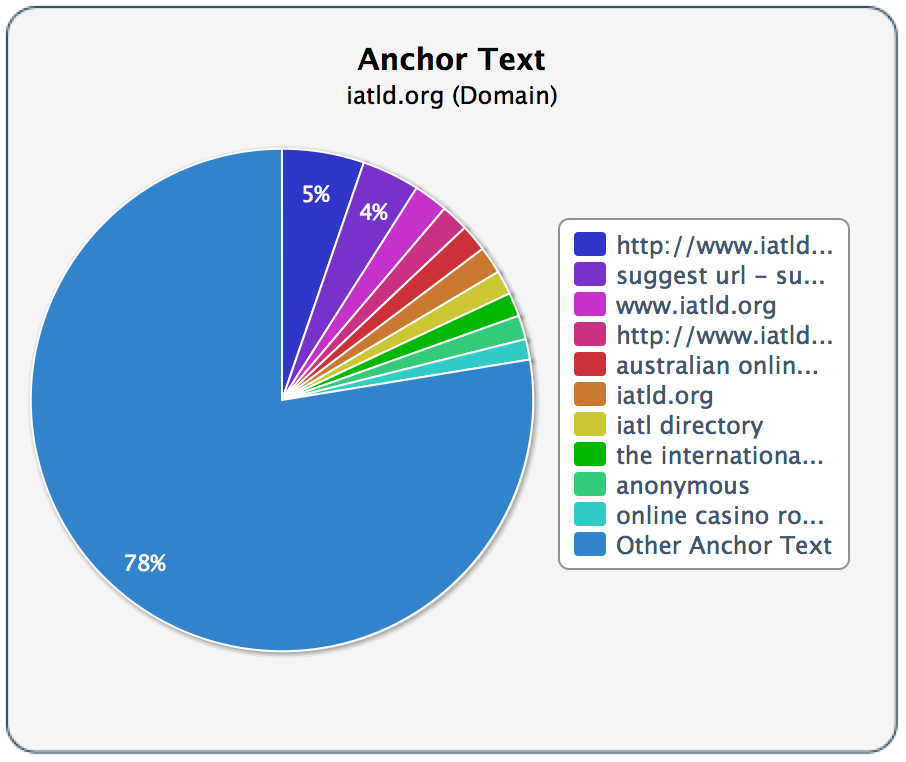Just had a look at online casino bonus UK SERPs (the way I always do at 2 am) and saw this at #6:

That’s right, the site of the International Association of Top Level Domains. Apparently it got hacked, then fixed and the hacker created page got redirected to the home page? Actually, not. It got dropped and reregistered by somebody else:


So it’s indeed a very old and high authority domain, recently reregistered, and the new owner is not even hiding behind a private whois!
But wait, this is not all. The site has a practical reason for ranking where it’s ranking, of course. If you look at Google’s cache it’s all clean and legitimate…

– this is restored original content, complete with the actual date when it was still a legitimate IATLD site:

…yet if you go to the site itself you see a different picture:

If you look at the backlinks anchor texts, there is very very little left from the original link profile:

The new links have been built over a short period of time recently:

So much for all Google’s PR talk about stripping the value off expired domains and other such nonsense they say… There is much more interesting stuff that can be dug out but I’ll leave it at that. I know more about this than I have posted here but I’m not going to make it all public as that’s beside the point. The point is that if you listen to everything Google says and trust it blindly you will end up with lots of PR talk that is very far from the truth in many cases and no SEO knowledge at all. The only real way to learn how things work is to test things and watch the SERPs with a critical eye – trust me, there is more interesting stuff you can spot than you could ever imagine.
UPDATE: As of now, I am also seeing an even better ranking half a year old domain with nothing but hidden links of all sorts in its backlinks… the fun continues 🙂


Google is just not able to detect these anomalies. They can tell the public what they want but at the end these tactics still work like hell!
The issue you have identified in the UK is even more evident in Australia. about 80% of the sites in the top 30 are either hacked sites or xrumer backed spam sites. All done by the same person for the same operators. Quite amazing actually, considering the sites have been ranking for about 8 months with Googles Spam Team nowhere in sight.
I agree, Google cannot detect these anomalies, or just does not care about an industry like gambling.
Jan-Willem – exactly, especially in niches like this one!
Mercy – this is not only UK or Australia. I find that in non-English markets, it often gets even worse as any algo updates are rolled out to the .com first, then .co.uk, then elsewhere.
Also, it is worth noting that the domain in my example is ranking based purely on overall domain authority and anchor texts of its backlinks – no onsite content that Google can see and index is supporting it as the only gambling related content is in the popup that is cloaked from Google. Now where do all the speculations about links becoming a less significant factor in the algo go?